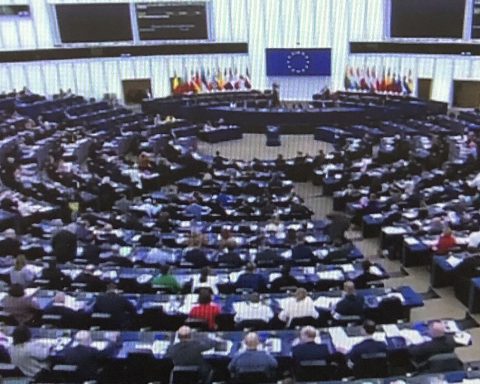The son of notorious hate cleric Abu Hamza has been jailed for his involvement in a money-laundering plot.
Ti-to Ibn-Sheikh created false identities for HSBC bank account holders using information passed to him by an insider at the bank.
Southwark Crown Court heard those accounts were used to launder nearly £350,00 from thefts and frauds.
The 35-year-old, from Shepherd’s Bush in west London, was jailed for three years and nine months.
Victims lost a total of £342,000 between May 2018 and December 2019 due to the scheme, the court heard.
Ibn-Sheikh was previously called Mustafa Hamza Kamel and is the son of radical Muslim cleric Abu Hamza, 63, who led the Finsbury Park Mosque in the 1990s.
Hamza was previously jailed in the UK for inciting violence and later extradited to New York after an eight-year legal battle. He is currently serving a life sentence in the US for terrorism offences.
Ibn-Sheikh’s barrister, Bill Evans, said his client had changed his name to distance himself from his father.
“His father has a degree of notoriety, which has caused him substantial difficulty and he and other members of his family have changed their names as a result,” he said.
The court heard that when he was arrested on 17 December 2019, Ibn-Sheikh was caught with 12 iPhones, 10 bank cards in different names and 14 identity documents.
He had previously pleaded guilty to two counts of conspiracy to launder money, possessing articles for use in fraud, possession of 14 identity documents with fraudulent intent, and possession of more than £12,000 in criminal cash.
Prosecutor Kelly Brocklehurst said the scam worked by obtaining a genuine identity document and then creating fake supporting documents. The iPhones were used to ensure each of the false identities had different contact details.
‘Leading role’
The court heard Ibn-Sheikh was on licence at the time of the offences, having previously been jailed in 2014 for 12 years for kidnapping.
Mr Evans said his client’s role was to set up accounts through which people could put substantial amounts of money to be paid out to foreign jurisdictions, meaning he was not the “ultimate beneficiary”.
However, judge Andrew Goymer said: “This defendant in my judgment played a leading role, not necessarily the leading role.
“He is not right at the peak, but he is not far below that because he used considerable skill, ingenuity and industry towards this fraudulent and dishonest scheme.”
Russell Tyner, of the CPS Organised Crime Division, said Ibn-Sheikh “was an active and willing participant in the conspiracy”.
He added: “These are not victimless crimes and wherever possible the CPS will work with our law enforcement partners to bring money laundering cases before a court and any ill-gotten gains recovered.”










